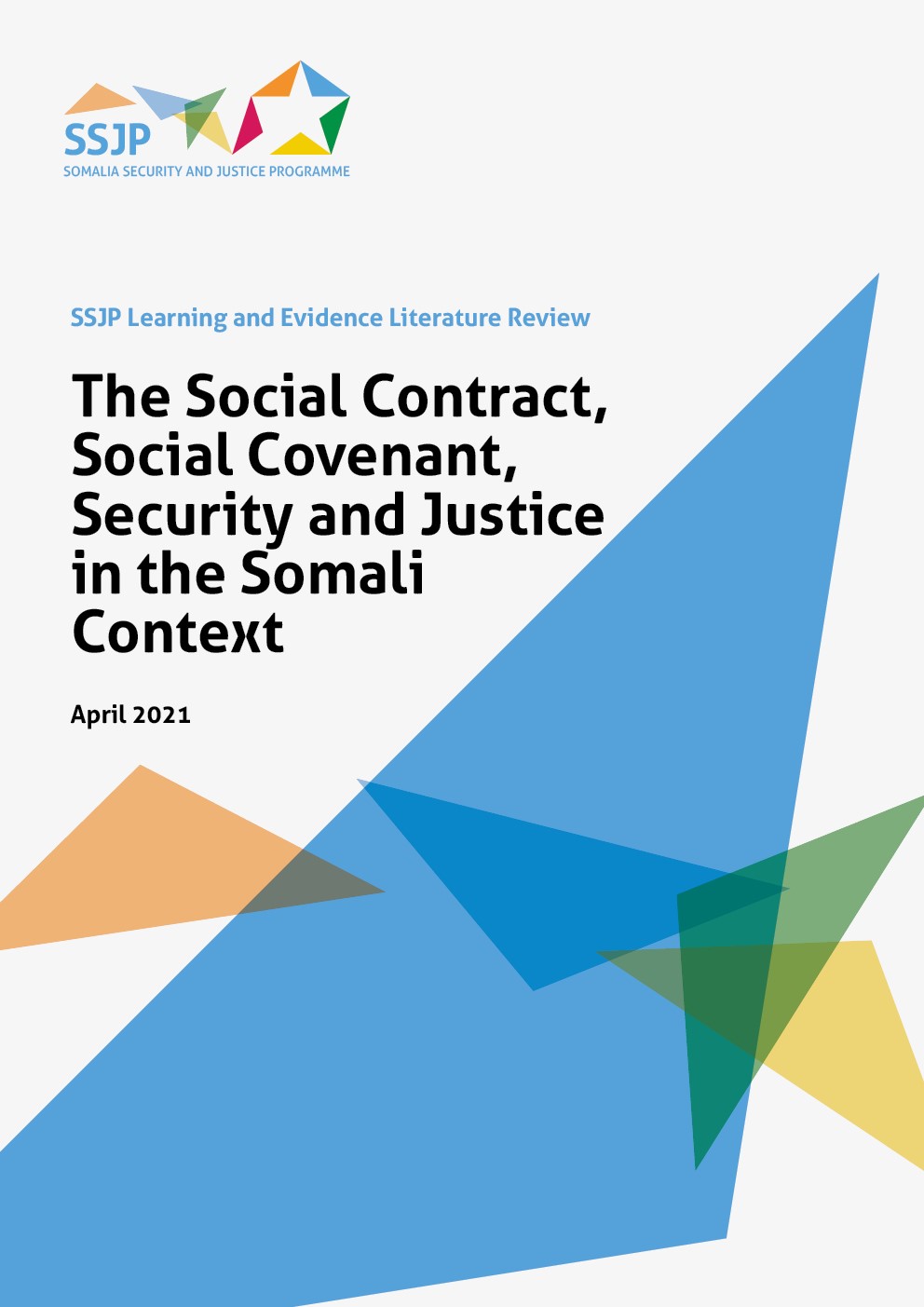This literature review explores Kaplan’s definitions of the ‘social contract’ and the ‘social covenant’. In doing so it finds that there can be both horizontal and vertical aspects of to the notion of the ‘social contract’ but that the ‘social covenant’ is not fully applicable in the Somali context.
Somali society is horizontal in nature, with all men considered equal. The primary socialisation of Somali citizens is first and foremost based on kinship and religious identities. Similarly, xeer’s focus on connecting groups together in a socio-juridical order is horizontal in character. Top-down imposition of leadership or a social contract based on individualism and national identity is not well-suited to a Somali context.
Most of the literature available deals indirectly with major changes in value systems, social norms or behaviours in the Somali context over the past century and, instead, has focused on social and political institutions and organisations. The paper recommends that national justice institutions are better pursued after a deep reconciliation process which establishes a wide and inclusive agreement between Somalis and the idea of a new state and its institutions. Somaliland and to a lesser extent Puntland are highlighted as successful examples of a social contract achieved through negotiated bottom-up processes in existing literature; both combine traditional mechanisms with civic leadership. There has been no similar process in South-Central Somalia, and donor-implemented justice reforms have not significantly improved access to justice over the past several years either.
A social contract is useful to the extent you can talk about an agreement. However, they are often imposed. Xeer is the closest you get to a social contract. Scaled up from the local to the national level, it could potentially lead to stability in Somalia and would fit within a comprehensive peace programme. In the meantime, xeer can be used to assist communities in maintaining and developing localised resolutions to disputes and justice – as some of the evidence reviewed suggests.
Solutions to cross-sectoral problems, including but not limited to security and justice, will require working across all of these sectors at national and sub-national levels. National or external impacts have undermined positive outcomes from previous attempts at applying a new social covenant at more local levels. A deep reconciliation process, which creates a new common ground for all Somalis and a new relationship with the idea of the state, is needed for a new constitution that is rooted in a Somali process. A one-off, donor-funded programme cannot achieve this on its own. Programmes following SSJP should clarify their main objectives: is it improving security and justice or reconciling Somalis in a common and much wider project?

